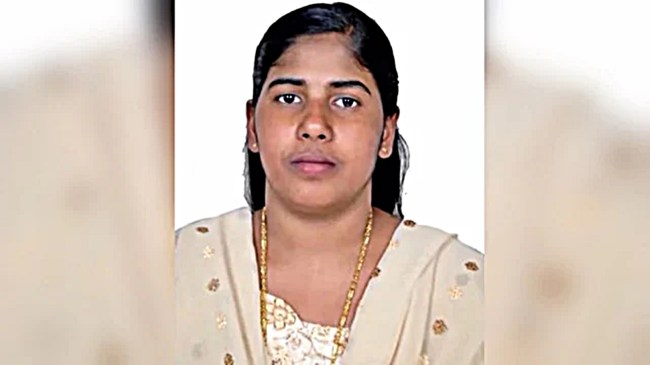Opinion Centre says they can do nothing much. What Nimisha Priya’s case tells us about fate of Indian migrant workers
Her story must become a catalyst for institutional change. India needs a comprehensive migrant worker protection regime
 For Nimisha Priya, time is running out. But her story must become a catalyst for institutional change (File photo)
For Nimisha Priya, time is running out. But her story must become a catalyst for institutional change (File photo) Indian nurse Nimisha Priya of Kerala is to be executed in Yemen on July 16, 2025. The Centre has already informed the Supreme Court that “There’s nothing much the government can do.” Her case, shrouded in controversy and prosecuted by the de facto regime allegedly led by the Houthis, instead of the internationally recognised judicial system of Yemen, has brought the critical plight of Indian migrant labourers overseas into the open, particularly those who find themselves in legal black holes where due process is discretionary and consular protections mostly unavailable.
Nimisha Priya was accused of killing her business partner in 2017. She says she was acting in self-defence following months of physical and sexual abuse. India has no embassy operating in rebel-held northern Yemen. The United Nations-recognised Republic of Yemen, with Saudi Arabia and the UAE’s Southern Transitional Council support and backing, has gone one step further in distancing itself from the legal process, claiming that it was never ratified by the official President. As a consequence, an Indian citizen is being put to death under a quasi-legal framework with very little international supervision.
Nimisha Priya’s case is representative of a broader systemic failure to safeguard Indian migrant workers, and particularly women, in jurisdictions where human rights norms, the rule of law, and consular access are tenuous at best. Gulf states, Yemen among them, host millions of Indian workers who construct, clean, serve, and care, but who are legally invisible and politically disposable.
The International Convention on the Protection of the Rights of All Migrant Workers and Members of Their Families (1990), one of the most important human rights treaties, provides such vital protections as the right to a fair trial, access to legal aid, and freedom from arbitrary detention or expulsion. But here’s the bitter reality: The majority of Gulf and West Asian nations, Yemen being one of them, are not signatories to it. India has not acted on this Convention either. This lacuna in the law results in workers such as Priya continuing to be stateless in spirit, albeit not in law.
One can refer to the case of Qatar’s death row prisoners, most of whom are foreign workers found guilty in allegedly opaque trials. It’s now well known that migrant workers are often denied interpretation, lawyer access, or even the right to communication via consuls, contravening the Vienna Convention on Consular Relations (1963). Article 36 of the Convention requires consular access and assistance upon arrest or detention. But it is powerless without the support of enforcement mechanisms or political will.
In 2024, the Overseas Workers (Welfare) Bill, 2024 was tabled in the Parliament, which provides for the establishment of a Register of Overseas Workers, social security agreements between two countries, and schemes for welfare, including insurance, repatriation of mortal remains, and legal aid overseas. Notably, Clause 4 requires studies to determine the access of Indian workers to legal recourse and human rights in foreign legal systems – this is what Nimisha Priya did not get. Primarily, the Bill authorises the Indian government to draw up bilateral agreements with foreign countries to protect Indian workers — an approach much more realistic than awaiting the ratification of multilateral conventions.
Nimisha Priya is not only a legal case
Had there existed such an agreement with Yemen or its de facto leaders, Nimisha Priya would not have had to turn to non-state actors and crowdfunding to beg for her life. The issue, however, is not just legal lacunae. It is also ethical. The Indian government has to determine if it appreciates the millions of Indians who remit billions of dollars every year as economic contributors or as citizens who are entitled to protection, dignity, and justice, even if they work in foreign lands that are hostile to them.
The path ahead is complicated. Yemen is a broken state. India has little influence over the Houthi rebels. For Nimisha Priya, time is running out. But her story must become a catalyst for institutional change. India needs a comprehensive migrant worker protection regime, one that functions not just on paper, but on principle. A government that guarantees that no Indian, whether far from home, is left to die unseen, unheard, and unprotected.
The writer teaches at Jindal Global Law School





